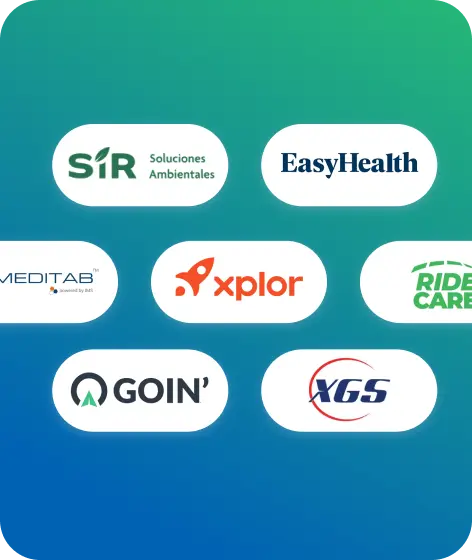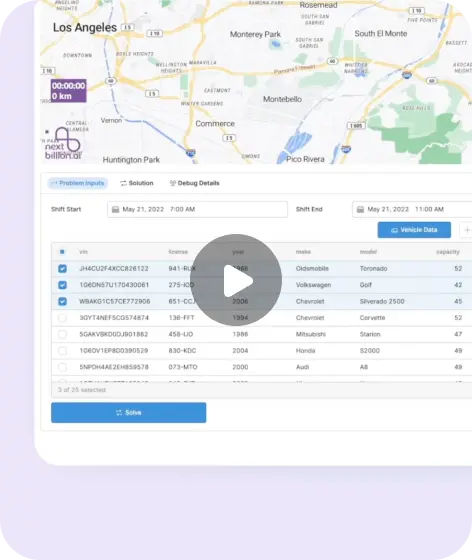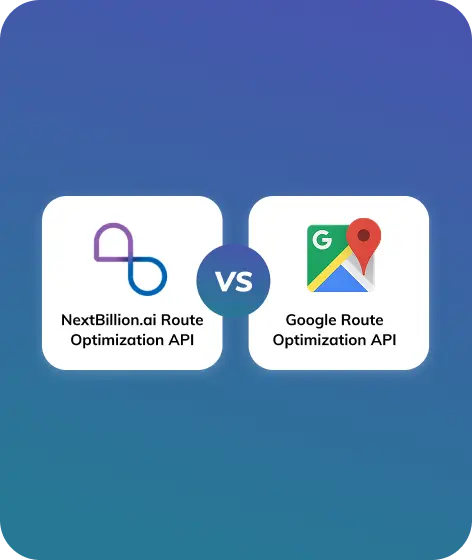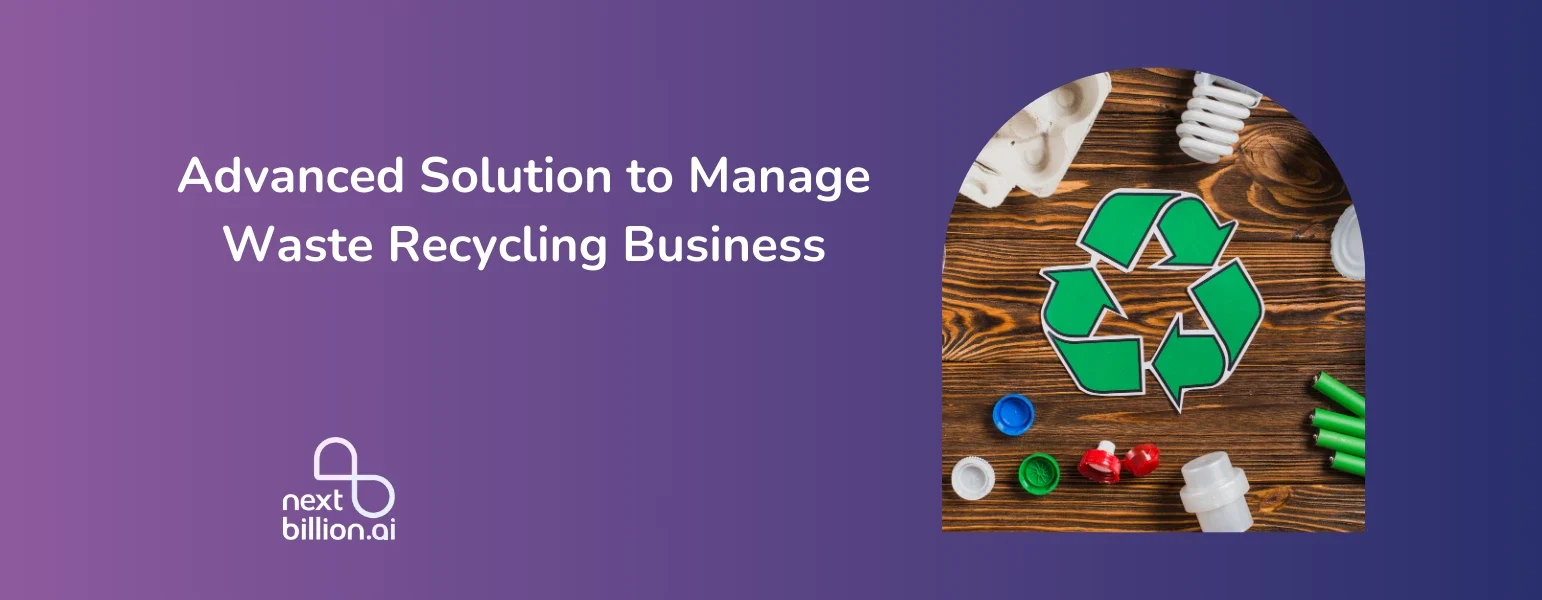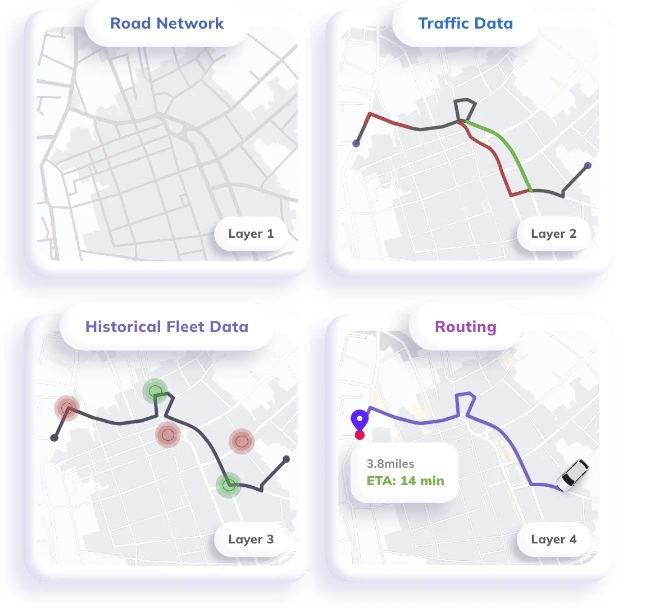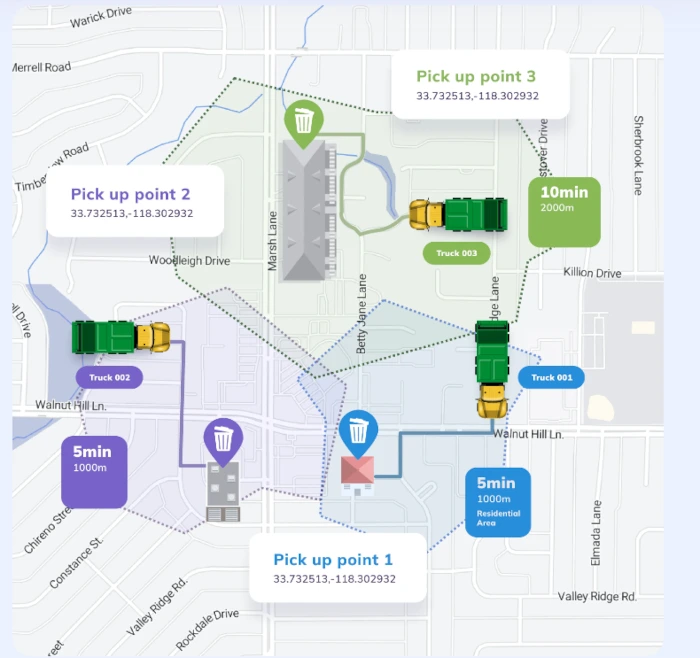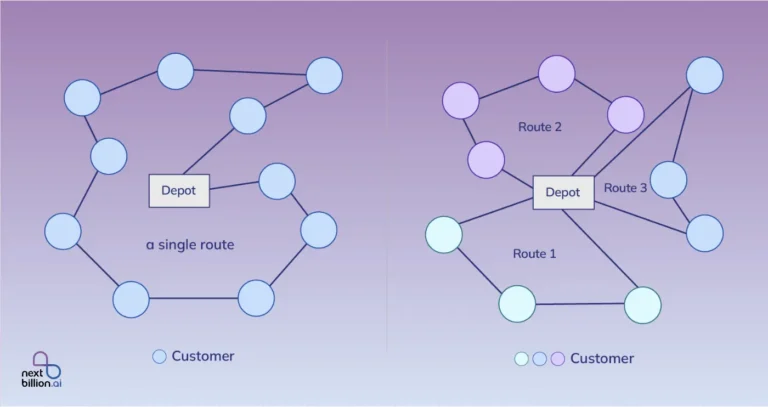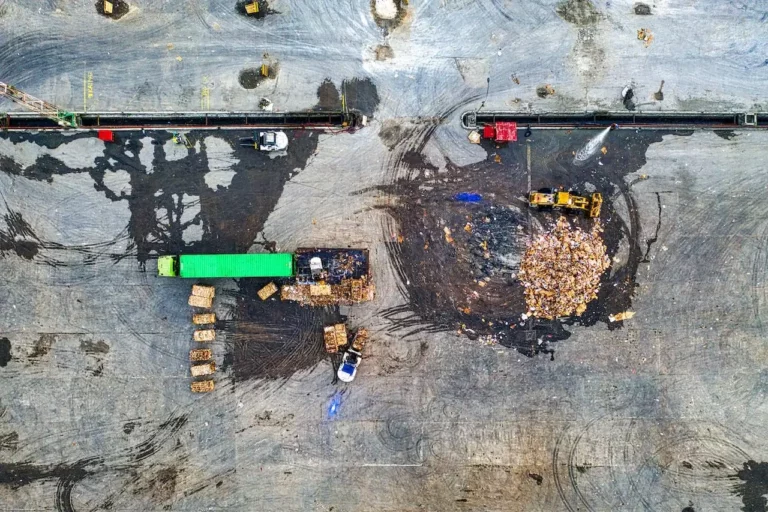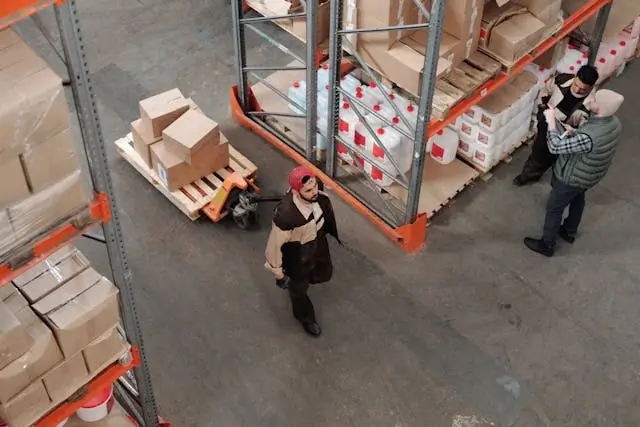
Table of Contents
Evolution and potential growth in society has led to huge developments, and it is not just about infrastructure or technological advancements. Innovators are now accepting the challenge to recycle waste materials that are getting dumped in the environment.
The concept of waste recycling business model is powered by the idea of green initiatives and is expanding globally. It offers 2-way appreciation by generating wealth, and promoting conservation, alongwith reduce, reuse, or recycle to maintain a sustainable environment.
According to a report by Coherent Market Insights, the global waste recycling market is expected to reach USD 93.24 billion by 2031 growing at the rate of 5.2% from 2024 to 2031.
The upcycling process is indeed a growth-oriented business segment. While the competition is less, the demand tends to increase every year. Waste products are not just readily available, but in fact it is a complex issue. Waste management is practically the need of the hour rather than just a business idea for money-making.
Waste recycling entrepreneurship strategy requires teamwork and agility to overcome the obstacles laying inefficient outputs. This article covers the primary challenges of upcycling enterprise, and how you can tackle them effortlessly. As a bonus, you can also consider reviewing the top selling business ideas listed below for recycling waste of different categories.
Challenges in Waste Recycle Business Management
Streamlining garbage collection and recycling it into a usable product is a thoughtful yet difficult process. The following are some critical issues that affect the smooth functioning of these ventures.
Route Management
Transportation of trash from different locations to the shredding or segregation centers plays an important role in this business format because the story starts from here. Waste collection is a field operation instead of a closed area management process. Therefore, there are multiple aspects involved in synchronizing the steps from vehicle allotment, routes, time windows, collection, and delivery.
Your enterprise may require picking up junk from landfill sites, garbage collection centers, pellet factories, industries, or individual houses and colonies. Often problems arise with customiizing route plans, managing fleets, tracing the speed of vehicles, ETAs, and other restrictions.
Safe Handling
Some factories release hazardous waste products directly into landfills. Therefore, it is necessary to ensure optimum safety measures for the waste collection workers in such factories and in the field.
To deal with emergency situations, you should have an integrated navigation tool with your ERP system to reach the accident location through the fastest route.
Recycled Product Quality
Irrespective of which creative recycling business idea strikes you, the quality of re-manufactured items is equally important. It is quite a tedious job to manage recyclable materials of random standards, thus maintaining best production.
Even though awareness about reuse, restoration, and recycling is increasing globally, the majority of buyers do not compromise with the quality of the product.
Component Segregation
Refining trash to separate usable materials and unwanted items is another critical factor that troubles business processing units. The initial step requires a team of skilled labors who are capable of differentiating specific elements from a variety of broken pieces.
There can be several stages of sorting waste products, and it needs continuous monitoring.
Competitive Market
The green revolution and sequential promotion of sustainable developments have created a new segment with high potential. With public awareness, there is a significant rise in demand for recycled products, specifically paper and plastic recycling ideas.
There is a high availability of discarded material at a low cost, which attracts many large groups to invest in waste recycling stocks, promote innovations, and apparently reduce their carbon footprints. So unless you are creative enough to develop unique products and manage the demand and supply ratio, it can be tough to compete in the waste recycling market.
Depending on the business idea and the available resources, such as finances, marketing, support systems, and general awareness, there could be numerous additional risk factors. We intend to put forth some incredible ways by which you can continue to grow your green initiative while minimizing the uncertainties.
Efficient Ways to get Ahead with Waste Recycle Business
Developing a sustainability model requires a strong sense of determination and the ability to view challenges as opportunities for learning and growth. Above-mentioned are a few unavoidable risk situations attached to waste recycling businesses, but there are credible and tested solutions available to overcome such hurdles.
- If your managers have complete control over the vehicles that collect and carry the load, you save time and money. To maintain efficiency at work, you need an automated system that supports vehicle tracking.
- It is impossible to manually arrange perfect routes that reduce time and fuel energy while achieving higher results. Integrating a functionally effective route optimization API helps in clustering the collection points to provide optimized routes with interactive maps and accurate ETAs. It also assists with quick support to the field workers during emergency situations.
- Low-quality products that are manufactured after recycling will struggle to find a suitable market. Therefore, it is crucial to implement a mechanism that consistently evaluates the products against various quality standards, including workability, usability, and environmental impact. This certainly ensures that the final output fulfills the demands of the users.
- Garbage is the primary raw material for your business, and your team should have expertise in recycling the finest components. Utilise the API’s field service scheduling mechanism for skill-based job allocation and cost-effective operations.
- It is imperative that you research thoroughly about the market trends with respect to the goods leading the sales. An analysis wing can leverage market surveys to understand the requirements of customers as well as working patterns of companies in the segment.
There are a wide range of conceptualized waste recycling ideas that serve best in following ESG principles, ensuring customer satisfaction, accumulating net zero targets, and generating wealth through successive growth.
12 Best Selling Waste Recycling Business Ideas
Gear up your entrepreneurship with most successful waste recycling business ideas given below.
1. Plastic Recycling
Without a second thought, plastic recycling is the most common phenomenon for discussion in building a sustainable environment. There are advanced machines available to recycle specific categories of plastic materials like PET [1], HDPE [2], LDPE [4], or PP [5]. It is an evergreen market with demand across every class and group.
There is a wide range of recycled products made for common use, like bottles, furniture, jackets/pants, and toys. It also finds usage in industrial goods such as packaging materials, pellets/ lumber, pipes, sheets, automotive parts, and construction alternates.
Researchers have also formulated base products in composition with recycled plastics, while these are also getting utilized as fuels through pyrolysis procedures.
2. E-Waste Recycling
This segment is expected to experience the highest growth rate in this century due to the massive production of electronics goods. It is not just limited to mobiles, TVs, and laptops that have reached every hand and household in developing countries like India and China. There is an unlimited list of electronic machines for common purpose and industrial systems, while innovators do not tend to stop here.
These devices get replaced usually after malfunctioning and carry negligible value later. However, due to their easy availability, you can recover an abundance of precious metals and other components such as plastic after recycling e-waste. You can also reuse these to create consumer goods.
3. Recycling Medical Waste
With immense growth in medical facilities, it is obvious that waste discharge from clinics, hospitals, or veterinary centers is enormous. Due to the presence of hazardous elements and pathogens, organizations require a robust system to effectively neutralize the waste discharge.
It can be a lucrative business, with an initial investment in specialized equipment and customized trucks that receive real-time information about waste collection on the route. You may receive government subsidies and investment partners from large groups of hospitals.
4. Paper Recycling
Paper recycling has become a prominent business model due to its relatively simple system setup and genuinely high demand. It plays a significant role in promoting green initiatives throughout the World.
The business generates regular sales from corporate departments and small-scale business industries. After recycling, the waste paper becomes pulp and can be used to make newspapers, cardboard, paper bags, greeting cards, wall hangings, and other items.
5. Fabric Recycling
Spare and torn-out wearable clothes are readily available for fabric recycling entrepreneurs. For many years, creative stitching experts have been tailoring bags, bed sheets, curtains, and other items from used and thrown-away clothes.
Big fashion brands accepted it due to its growing demand and feasibility. They used recycled polyester or cotton to create new garments. Additionally, repurposing clothes promotes environmental consciousness and sustainability. A notable factor is that the raw material is easily available while experts can train workers for stitching and upcycling.
6. Glass Recycling
The glass recycling business is growing rapidly for two main reasons. There is a dire increase in usage of glass utensils, decoratives, window panes, etc., and unlike plastic, recycling of glass does not affect the quality of the newly created product. It is because the process involves glass melting, while its chemical composition, i.e., silica, does not show quality degradation.
Segregating glass from landfills can be a difficult job and requires safety gear, but the whole process helps reduce waste from the environment. You can make glass bottles, tiles, tableware, jewelry, decorative items, or use it in developing construction materials.
7. Waste Food Recycling
Food wastage is a global issue. A study shows that 20% of food produced all over the world gets wasted each year. The food begins to decompose, releasing harmful greenhouse gases. Therefore, such initiatives are vital to saving Earth’s resources, environment, and disease provocation.
Leftover food from households, restaurants, raw markets, and farmlands is the primary source of food recycling businesses. So it is essential to schedule route plans for collection vans. The mechanism can produce compost for farms, animal feed, and biogas or renewable energy.
8. Metal Recycling
It is a profitable industry with minimal risks of recession. But the fact is that it requires a lot of investment in building a factory and training the workers. Waste metal is available through various sources such as kitchen utensils, junk yards, steel sheets, scrap vehicles, tools, and machines.
The recycling process involves separating or extracting valuable metals like gold, silver, copper, brass, iron, etc. from alloys of ferrous, aluminum, bronze, and other compounds. You can make products like beams, fences, pipes, tools, automotive components, utensils, machinery, etc.
9. Wood Recycling
Wood recycling is directly related to safeguarding trees from cutting down and, in turn, conserving soil, air, and other ESG factors. The raw form of wood picked may include rejected furniture, doors, windows, sports accessories, log pieces, etc.
The recycling process includes sorting, shredding, and compressing the broken wooden pieces collected to make paper, pellets, furniture, construction materials, and a lot more. It ensures standard product quality and durability with no visible difference between recycled wood and fresh wood.
10. Rubber Recycling
The primary source of raw rubber waste are tires from different types of vehicles. It serves no other purpose except in a few cases where influencers promote reusing tires in colored decorations, like flower pots. But there are piles of industrial waste as well that is getting dumped in littered places.
The upcycling process entails shredding and retreating in order to make racing tracks, adhesives, road construction, tires, and other compounds.
11. Construction Waste Recycling
Constructional development is evident in the nation’s growth, and so is the production of waste material and debris. Collecting and recycling this unwanted produce is a fruitful and evergreen business. You can deploy multiple load trucks to collect the waste from various sites and process it into various categories such as bricks, concrete, filling material, and other materials.
12. Battery Recycling
Batteries are an essential part of our lives. They provide power to electrical appliances, inverters, vehicles (electric or non-electric), and even industrial machinery. There are different types of batteries, like lead-acid, lithium-ion, etc., and they require experts to carry out the recycling process because of the harmful components in them.
Used batteries yield metals like cobalt, lithium, nickel, lead, and cadmium that are useful in other industries. There is high growth potential in the battery recycling business, and it can thrive until technological demands change.
These are major categories of waste recycling business ideas that aim to provide you with a broader picture about waste management and its feasibility in creating useful items.
Boost Your Waste Recycle Business with NextBillion.ai API
Start your entrepreneurial journey by converting waste materials into useful products. Creative innovation in recycled product manufacturing is genuinely encouraged Worldwide to promote sustainable developments.
Anything rejected after usage becomes a liability on the planet if its last resort is a landfill site. These places serve as a storehouse for waste and recyclable materials that must be transported efficiently to the segregation centers before processing.
The NextBillion efficient routing and road editor tool enables you to manage waste collection from multiple locations in a convenient manner. Create tiles on automated route maps, generate accurate data with transit times between clustered locations, and navigate through unmapped regions.
About Author
Nitesh Malviya
Nitesh Malviya is a research-oriented professional with a background in Computer Science & Engineering. He served for 7 years as a software consultant and wrote passively in the tech niche before becoming a full-time technical writer.

